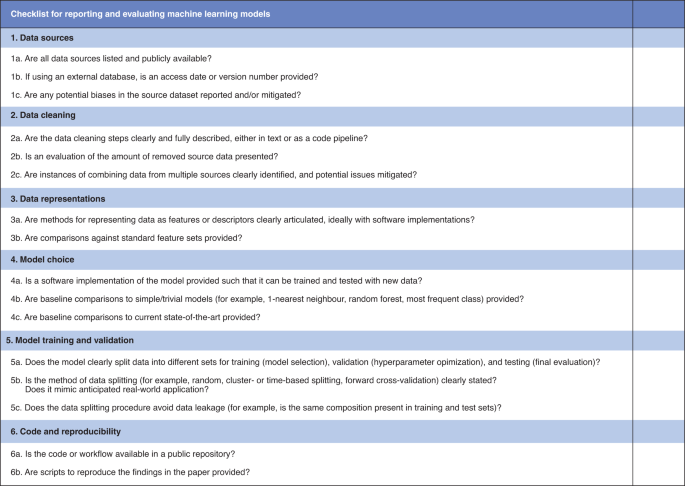The ultimate checklist for evaluating lead management software ensures accuracy, relevance, and efficiency in choosing the right tool. Whether you are a small business or a large enterprise, selecting the best lead management software can greatly impact your sales and marketing efforts.
It is crucial to evaluate various factors such as features, integration capabilities, customer support, and pricing options before making a final decision. This checklist provides a comprehensive guide to help you assess and compare different software solutions, ensuring that you make an informed choice that aligns with your business goals.
By following this checklist, you can save time, money, and resources by selecting the most suitable lead management software for your organization.
Features To Consider
When evaluating lead management software for your business, it’s crucial to consider the features that will address your specific needs. The right software can greatly improve your lead management processes, automate tasks, and help you nurture valuable leads more effectively. In this section, we will discuss the key features you should evaluate when choosing a lead management software.
Customization Options
Customization plays a vital role in ensuring that the lead management software aligns with your unique business requirements. Look for software that allows you to tailor the system to your specific needs, such as customizing lead statuses, fields, and workflows. This level of flexibility enables you to create a lead management process that suits your organization’s preferences and workflows.
Lead Capturing
An effective lead management software should offer robust lead capturing capabilities. The software should allow you to easily capture leads from multiple sources, such as contact forms on your website, landing pages, email campaigns, and social media platforms. Look for features like form builders, lead capture widgets, and seamless integration with your website to ensure all lead information is centralized and captured accurately.
Lead Scoring
Lead scoring is a crucial feature that helps you prioritize leads based on their level of interest and engagement. It allows you to identify hot leads that are ready for sales follow-up and potential opportunities that require further nurturing. Look for lead management software that offers customizable lead scoring models, allowing you to assign values to various lead attributes such as demographics, behavior, and engagement level.
Lead Nurturing
The ability to effectively nurture leads is essential for maximizing conversions. Look for lead management software that offers advanced lead nurturing capabilities, such as automated email campaigns, personalized content delivery, drip campaigns, and lead segmentation. These features enable you to build stronger relationships with your leads, keep them engaged throughout the buyer’s journey, and increase the chances of conversion.
Integrations
Integration capabilities are crucial to ensure seamless communication between your lead management software and other tools or platforms you use. Look for software that offers integrations with your CRM system, email marketing tools, marketing automation platforms, and other relevant software. This integration allows for smooth data transfer and eliminates the need for manual data entry, saving you time and ensuring data accuracy.

Credit: www.nature.com
Ease Of Use
When it comes to choosing the right lead management software for your business, one of the most critical factors to consider is its ease of use. An intuitive and user-friendly platform can make all the difference in streamlining your lead management process and maximizing productivity.
User Interface
The user interface (UI) of the software plays a crucial role in its usability. A clean and well-designed UI ensures that navigating through the software is effortless and visually pleasing. It should be easy to locate and access essential features and functions, even for users who are new to the system.
Onboarding Process
An efficient onboarding process is vital for quickly getting your team up to speed with the lead management software. Look for a solution that offers a straightforward and guided onboarding process, providing step-by-step instructions and training to ensure a smooth transition. This not only saves time but also minimizes the learning curve for your team.
Training And Support
Having comprehensive training and support resources is essential to maximize the software’s potential. The software should provide adequate documentation, tutorials, and guides to help you and your team understand its features fully. Additionally, prompt and reliable customer support is critical in resolving any issues or questions that may arise during the usage of the software.
Automation Capabilities
Automation is a powerful feature that can greatly enhance efficiency and productivity in lead management. Look for software that offers robust automation capabilities, such as automated lead scoring, lead assignment, follow-ups, and workflows. These automated processes can help streamline your lead management process, freeing up valuable time for your team to focus on more critical tasks.
Data Management
Data management is a vital aspect of evaluating lead management software. Effective data management ensures that your business can seamlessly import and export data, maintain the security of sensitive information, analyze data for actionable insights, and integrate with your CRM system. Let’s take a closer look at each of these crucial areas:
Data Import And Export
An essential feature of lead management software is the ability to easily import and export data. This capability allows you to transfer leads and customer information between your software and other platforms, such as your CRM or marketing automation tools. Look for lead management software that supports various file formats and offers a user-friendly interface for swift and accurate data imports and exports.
Data Security
Ensuring the security of your data should be a top priority when evaluating lead management software. Look for software that employs robust security measures, such as encryption and secure cloud storage, to protect your sensitive information. The software should also have user access controls, audit logs, and regular data backups to safeguard against unauthorized access and data loss.
Data Analytics
Data analytics is crucial for gaining valuable insights into your leads’ behavior and making data-driven decisions. Look for lead management software that provides comprehensive analytics capabilities, such as customizable reports, dashboards, and data visualizations. These tools will help you understand conversion rates, lead sources, campaign performance, and other key metrics to optimize your lead management strategy.
Crm Integration
Seamless integration with your CRM system is essential for effective lead management. The lead management software you choose should integrate effortlessly with your existing CRM platform, allowing you to sync data in real-time between the two systems. This integration ensures that your sales team has access to the most up-to-date and accurate information, enabling them to engage with leads more effectively and drive conversions.

Credit: optinmonster.com
Reporting And Analytics
When evaluating lead management software, reporting and analytics capabilities are crucial for tracking the success of your marketing campaigns and sales efforts. A robust reporting and analytics feature allows you to gain valuable insights into your lead conversion rates, sales funnel tracking, ROI measurement, and performance metrics. Let’s explore each of these areas in detail.
Lead Conversion Rates
Lead conversion rates are a critical metric for determining the effectiveness of your lead management software. With the ability to track lead conversion rates, you can assess the percentage of leads that successfully convert into customers.
By monitoring lead conversion rates, you can identify any bottlenecks or areas for improvement in your sales process. This data helps you optimize your marketing strategies and allocate resources more effectively, ultimately increasing your revenue.
Sales Funnel Tracking
Sales funnel tracking provides a comprehensive view of your leads as they progress through the sales process. It enables you to understand where your leads are dropping off and where there may be opportunities for further engagement.
With sales funnel tracking, you can identify the stages of your sales process that require additional attention or adjustments. This information can guide your sales team in nurturing leads and improving overall conversion rates.
Roi Measurement
Measuring the return on investment (ROI) of your lead management software is crucial for determining its cost-effectiveness and value to your business. You need to understand how your software investment directly impacts your revenue generation.
By analyzing the ROI, you can assess whether the software is delivering the desired results and contributing to your overall business growth. This measurement helps you make informed decisions about the future use of the software and justifies its expense within your organization.
Performance Metrics
Performance metrics encompass a range of data points that enable you to evaluate the effectiveness and efficiency of your lead management software. These metrics may include the number of leads generated, lead response time, customer acquisition cost, and customer lifetime value.
By monitoring performance metrics, you can identify trends, patterns, and areas for improvement. This knowledge empowers you to make data-driven decisions to optimize your lead management processes and fuel business growth.
Budget And Pricing
When it comes to evaluating lead management software, the budget and pricing are crucial factors to consider. To help you make an informed decision, we have compiled a comprehensive checklist that covers all the important aspects. In this section, we will focus on the budget and pricing aspects and discuss the relevant factors that you should consider.
Pricing Plans
One of the first things you need to evaluate is the variety of pricing plans offered by the lead management software provider. Look for providers that offer different tiers or packages, catering to different business sizes and needs. This allows you to choose a plan that aligns with your requirements and budget. Take note of the features and limitations of each plan to ensure they meet your specific needs.
Scalability
Scalability is a crucial consideration when it comes to budgeting for lead management software. You want a solution that can grow with your business and accommodate increasing lead volumes without incurring significant additional costs. Look for software that offers flexibility in terms of adding users, integrating new features, and managing increased leads efficiently. Scalability ensures that your investment in the software remains valuable in the long run.
Value For Money
While budget is important, it’s equally important to assess the value you will be getting for the money spent on lead management software. Consider the features, functionalities, and benefits that the software offers. Determine whether the price aligns with the value it provides. Look for software that offers advanced lead tracking, automation capabilities, customization options, and integration with your existing systems. Ensure that the software addresses your pain points and helps improve your overall lead management process.
Additional Costs
Finally, it’s crucial to consider any additional costs associated with the lead management software. While the pricing plans may seem affordable at first glance, there might be hidden costs that can significantly impact your budget. Take into account implementation costs, training fees, and any ongoing support or maintenance charges. These additional costs can add up over time, so it’s important to factor them into your decision-making process to avoid any unwanted surprises.
By considering the pricing plans, scalability, value for money, and additional costs of lead management software, you will be able to evaluate different options effectively and find the best solution that fits your budget and meets your business requirements.

Credit: zapier.com
Frequently Asked Questions Of Ultimate Checklist For Evaluating Lead Management Software
What Is A Lead Qualification Checklist?
A lead qualification checklist is a tool used to assess the quality of potential customers or leads. It helps to identify whether a lead meets specific criteria or qualifications, such as fit within the target audience or likelihood to convert into a customer.
The checklist ensures that only the most promising leads are pursued, saving time and resources.
How Do You Qualify For Mql?
To qualify for Mql, you need to follow these guidelines: 1. Understand the current SEO trends and algorithms. 2. Create unique, original, and high-quality content. 3. Optimize your website for relevant keywords and phrases. 4. Build high-quality backlinks to increase your website’s authority.
5. Regularly update and improve your website to provide a great user experience.
How Do You Identify Qualified Leads?
To identify qualified leads, focus on prospects showing interest, engaging with your content, and meeting your target criteria. Track actions like website visits, downloads, sign-ups, and responses to determine their level of engagement. Use analytics tools and lead scoring systems to prioritize and qualify leads based on their behavior and fit with your ideal customer profile.
How Do You Qualify Leads And Prospects?
To qualify leads and prospects, you can collect and analyze their information, such as their demographics, interests, and buying behaviors. You can also use lead scoring techniques to determine the quality and readiness of each lead. By continuously evaluating and nurturing leads, you can identify the most promising prospects for your business.
Conclusion
When choosing lead management software, it’s crucial to assess various factors such as scalability, customization options, user-friendliness, integration capabilities, and customer support. By following this comprehensive checklist, you can make an informed decision and find the perfect solution for your business needs.
Remember to consider your specific goals and requirements, as well as the software’s potential to streamline your lead management processes. With the right software in place, you can enhance efficiency, increase conversion rates, and optimize your overall lead management strategy.




